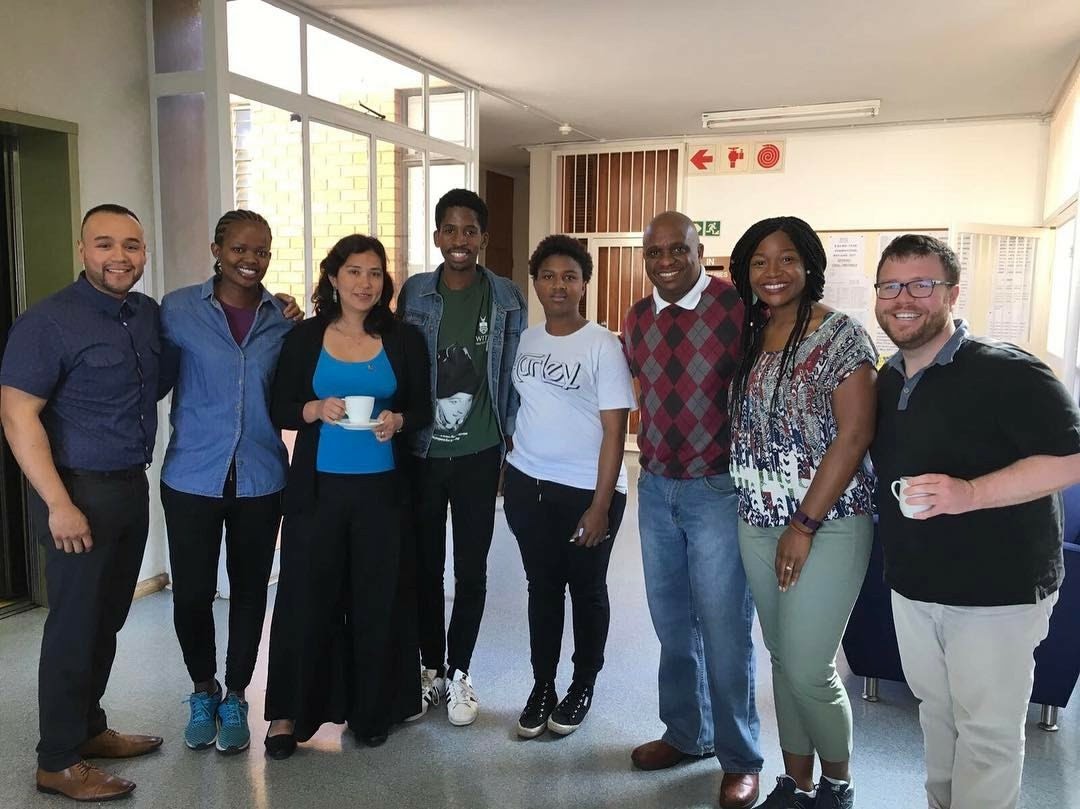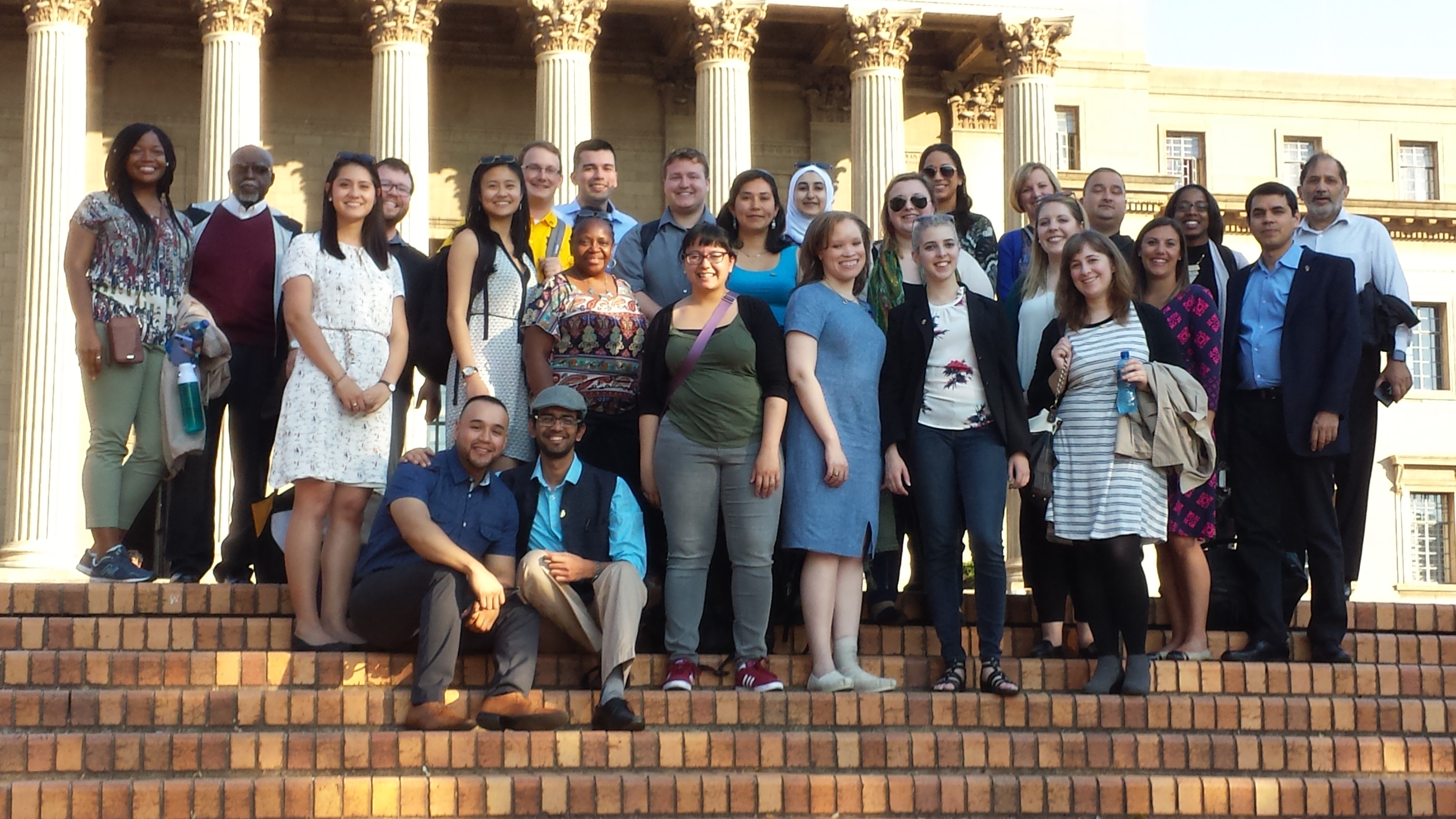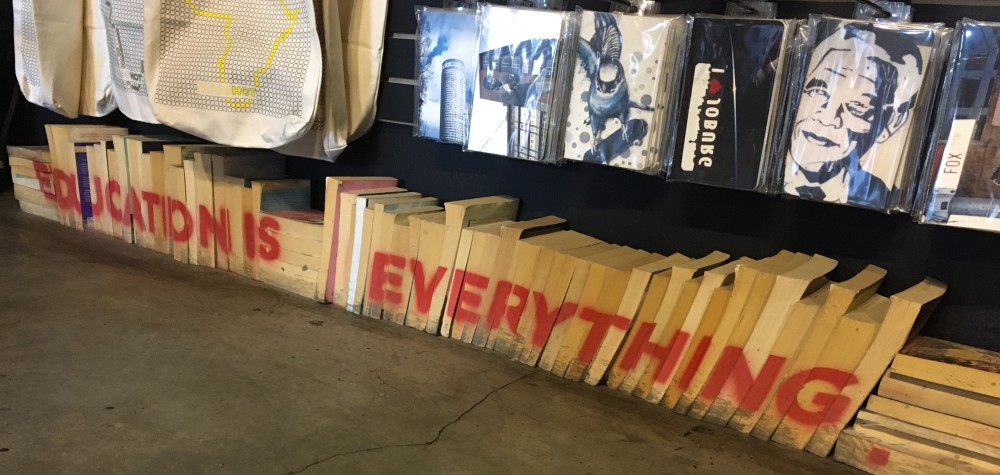University of Witwatersrand
Our visit to the University of Witwatersrand in Johannesburg begins with a warm welcome by the head of Wits School of Education, Dr. Lee Rusznyak.

Elizabeth Walton, associate professor in inclusive education at the Wits School of Education and a member of the forum of the UNESCO Chair for Teacher Education for Diversity and Development, shares sobering aspects of her research on inclusive education. For instance, not dissimilar to the U.S. context, deracializing schools does not solve disparities. Black schools in South Africa remain under resourced. In fact, her studies show there are higher disparities today than in 1994. And with youth unemployment at 50%, Dr. Walton explains that social mobility for many in South Africa “is a myth.”
In his presentation titled “Transformation in higher education in South Africa,” Dr. Felix Maringe, assistant dean for internationalization, shares his opinions about what it will take to truly transform higher education in South Africa. He notes that while people have changed since the dawn of democracy in 1994, curriculum change will be necessary in order to make real impact. In his words, “much has changed, nothing has transformed.”

A theme we hear throughout of time in South Africa is one of decolonizing the curriculum–recognizing, valuing and incorporating traditional African ways of doing and thinking.
Our colleagues at Wits arrange for us to hear directly from three student leaders of the #feesmustfall movement. These students provide us with a history of the #fees movement, and emphasize the importance of curriculum change.

After a comprehensive tour of the Braamfontein campus, led by Mohamed Moolia, Drs. Rusznyak and Walton join us again for lunch and further conversation at Olive and Plates in the lovely setting of the Wits Club.

University of Witwatersrand
On the second day of our study program, we spent our morning visiting the University of Witwatersrand (commonly abbreviated as Wits), where several professors, staff members, and students graciously welcomed us.
Dr. Lee Rusznyak, Dr. Felix Maringe, and Dr. Elizabeth Walton spoke with us about various aspects of the South African higher education system in the post-apartheid era, including what challenges remain. Dr. Rusznyak noted that, during apartheid, South Africa had 19 different government departments that oversaw initial teacher training for primary and secondary schools. Rather than focusing on pedagogical content knowledge, including how to make the course content accessible for students, the departments tended to emphasize skills. While this changed after the end of apartheid, it was helpful for contextualizing some of the country’s lingering barriers. While we spent the majority of our time in South Africa learning about and discussing the higher education system, it was fascinating to discover more about their primary and secondary education context and the ways in which it impacts postsecondary institutions.
Dr. Maringe, who serves as the assistant dean of internationalization at Wits, provided insight into students’ calls for curricular transformation. He argued that tensions between generations – that is, between young students and older faculty and administrators – makes this an especially fraught project. While curricular transformation is crucial, he noted that universities often lack the capacity, urgency, and enthusiasm for truly radical change; rather, the changes that institutions have enacted thus far have been piecemeal and, consequently, non-transformational.
Finally, Dr. Walton discussed what inclusive education might look like in South Africa. She addressed what has essentially become a two-tiered basic education system: one tier has access to resources, serves students from affluent families, and adequately prepares their graduates for higher education, while the other does not have adequate resources, overwhelmingly serves children from low-income families, and graduates students who are oftentimes ill-prepared for higher education.
After hearing from the faculty members, we had the opportunity to speak with students who had been leaders in the #FeesMustFall campaign at Wits. These students discussed what transformation in higher education looks like for them and their classmates. There were many moments throughout our program in which I wondered if both South African and American higher education institutions were caught in a similar moment of transition, transformation, and tension. Listening to Dr. Maringe speak about the faculty perspective (and later hearing Wits students discuss their point of view) reminded me of the ongoing conversations around diversity, equity, inclusivity, and justice in American colleges and universities – another reminder that our countries, despite cultural and historical differences, have a lot to learn from each other.
–Rachel Wright, master’s student
